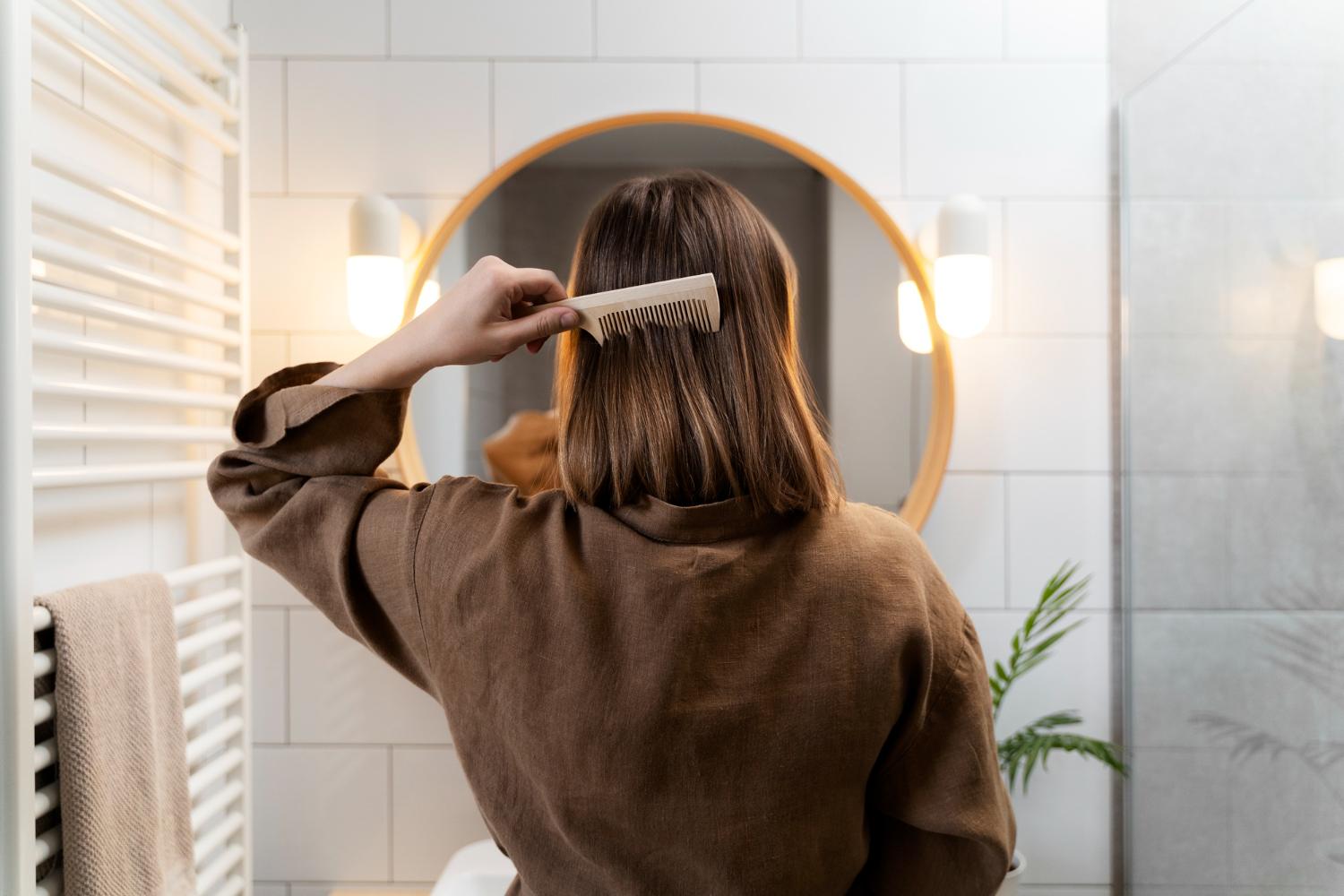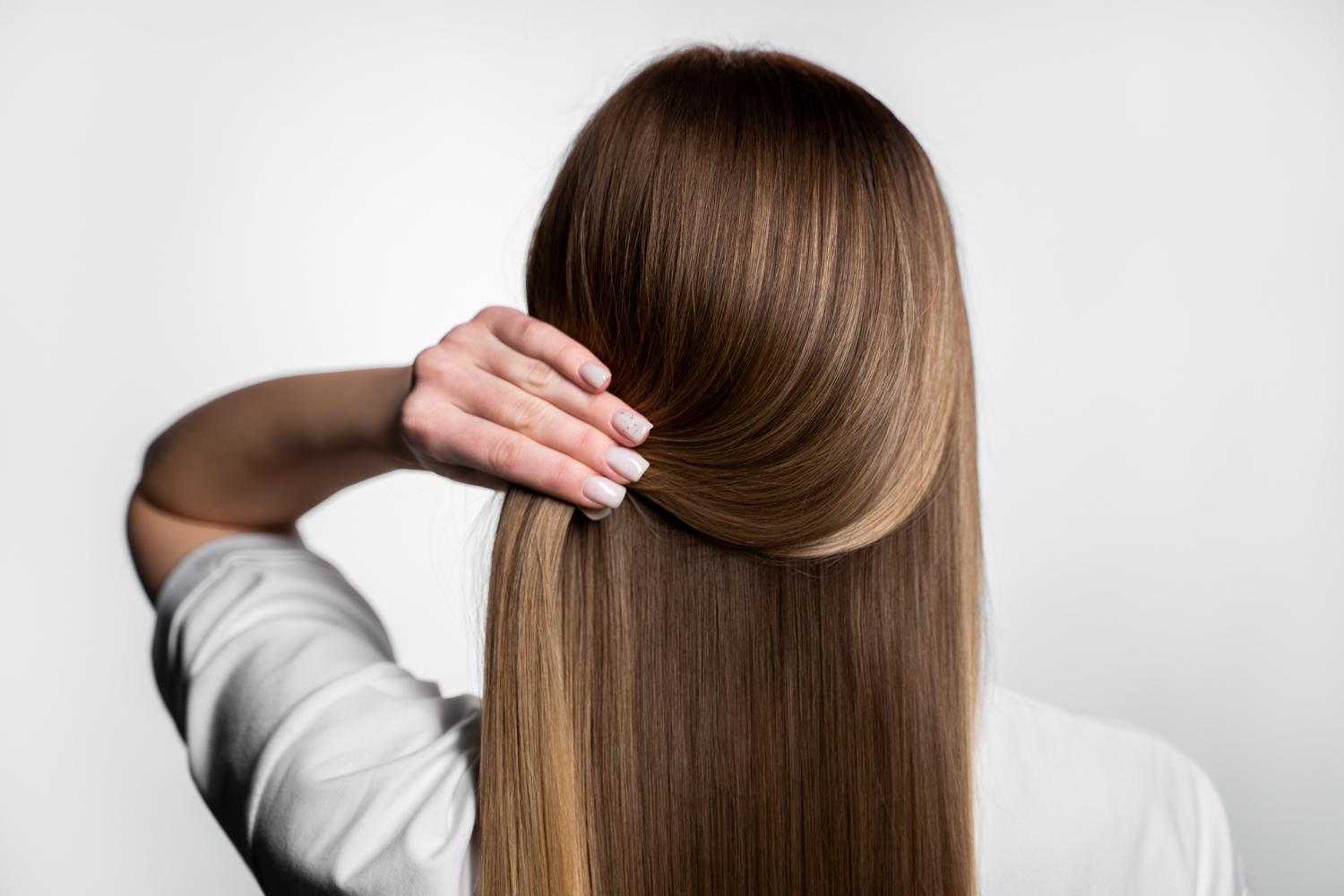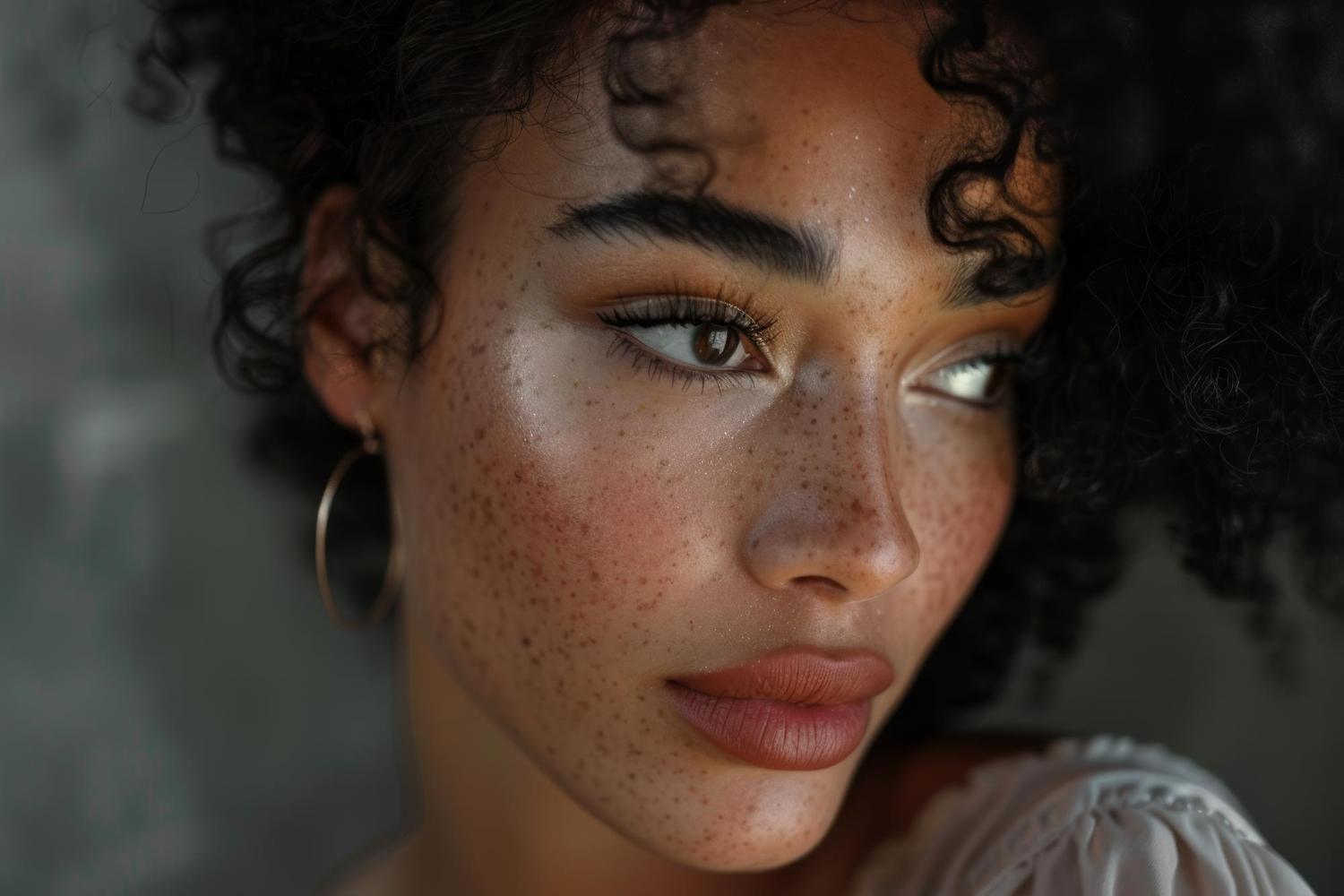Everyone wants healthy and strong hair, but sometimes it feels like a tough goal to achieve.
The good news is that with the right care and a few changes to your daily routine, you can improve the health and growth of your hair.
These tips are straightforward and easy to follow, so you can start making a difference right away.
Many factors play a role in hair health, from how you wash your hair to what you eat. This article will walk you through 14 practical tips that can help you nurture your hair.
Each suggestion is designed to fit easily into your daily life, ensuring that you can work on achieving healthier hair without feeling overwhelmed.
So, if you’re looking for ways to boost your hair’s growth and maintain its health, you’re in the right place.
Keep reading to learn about simple habits and changes that can have a big impact on your hair’s condition and appearance.
Whether you’re dealing with dryness, breakage, or slow growth, these tips will set you on the path to better hair.
1. Keep Your Scalp Clean
A clean scalp helps your hair stay healthy and grow better. Washing your hair regularly removes dirt, oil, and unwanted leftovers from hair products.
Depending on your hair type, you might not need to shampoo every day, but keeping your scalp clean is key.
Use a gentle shampoo that matches your hair type so it doesn’t strip away natural oils which are important for healthy hair.
Another aspect of keeping your scalp clean involves treating it gently. Avoid very hot water and harsh scrubbing which can irritate your scalp and harm hair follicles.
Instead, massage your scalp gently with the pads of your fingers when you wash your hair.
This not only feels great but also boosts blood flow to your hair roots, encouraging growth.
2. Eat Nutrient-Rich Foods

Hair growth loves a diet rich in vitamins and minerals.
Eating plenty of fruits, vegetables, proteins, and healthy fats can really make a difference in your hair’s health.
Foods like salmon, avocados, nuts, and berries support strong, vibrant hair. They provide nutrients that are key for hair growth, like omega-3 fatty acids, vitamin C, and iron.
Consistency in your diet is also crucial. Regularly eating balanced meals can improve the overall health of your hair over time.
Think about including a variety of foods in your meals to cover all the bases.
Sometimes, a daily multivitamin can help too, especially if you find it challenging to get all your nutrients from food alone.
3. Trim Regularly
Getting your hair trimmed might seem counterintuitive if you’re aiming for length, but it’s actually quite beneficial.
Regular trims help get rid of split ends and prevent hair damage from working its way up the strand. Even a small trim can make your hair look healthier and feel smoother.
Besides keeping split ends at bay, regular trimming can help your hair look thicker and more even.
Without uneven hair lengths and fewer split ends, your hair can grow out more uniformly.
Aim for a trim every six to eight weeks; however, how often you need one can depend on your hair type and growth rate.
Keeping a schedule makes sure you don’t forget to cut off those rough ends and keep your hair in the best shape to grow long and strong.
4. Avoid Overusing Heat Tools
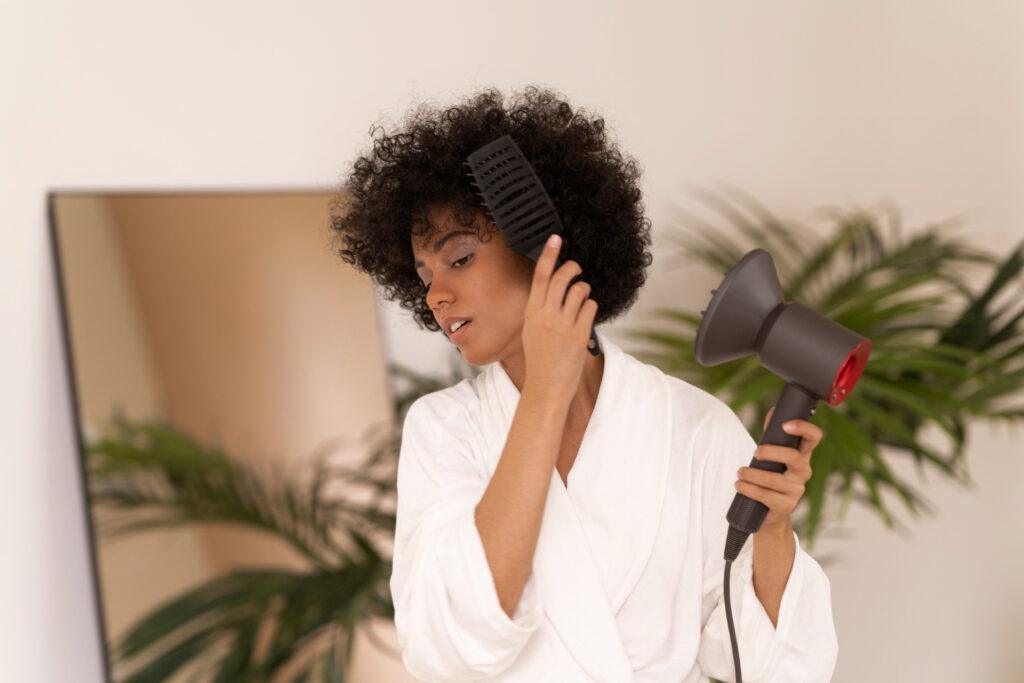
Hair dryers, straighteners, and curling irons are great for styling, but too much heat can weaken your hair.
Try to limit using these tools to a few times a week at most. When you do use them, always apply a heat protectant spray first. This acts like a shield, helping to prevent the heat from causing too much damage.
Letting your hair air dry as often as possible is a fantastic alternative. It might take longer, but it’s much gentler on your strands.
On days you’re not in a hurry, give your hair a break from the heat and enjoy the natural texture that comes through.
5. Stay Hydrated
Drinking enough water isn’t just good for your body; it’s essential for your hair too.
Hydrated hair is less likely to break and can appear much shinier and fuller. Aim to drink at least eight glasses of water a day to keep your body and your hair hydrated.
Keeping your hair moisturized from the outside helps too. Use conditioners, leave-in treatments, and hair oils that suit your hair type.
These products help lock in moisture and protect your hair from drying out.
6. Handle Hair Gently
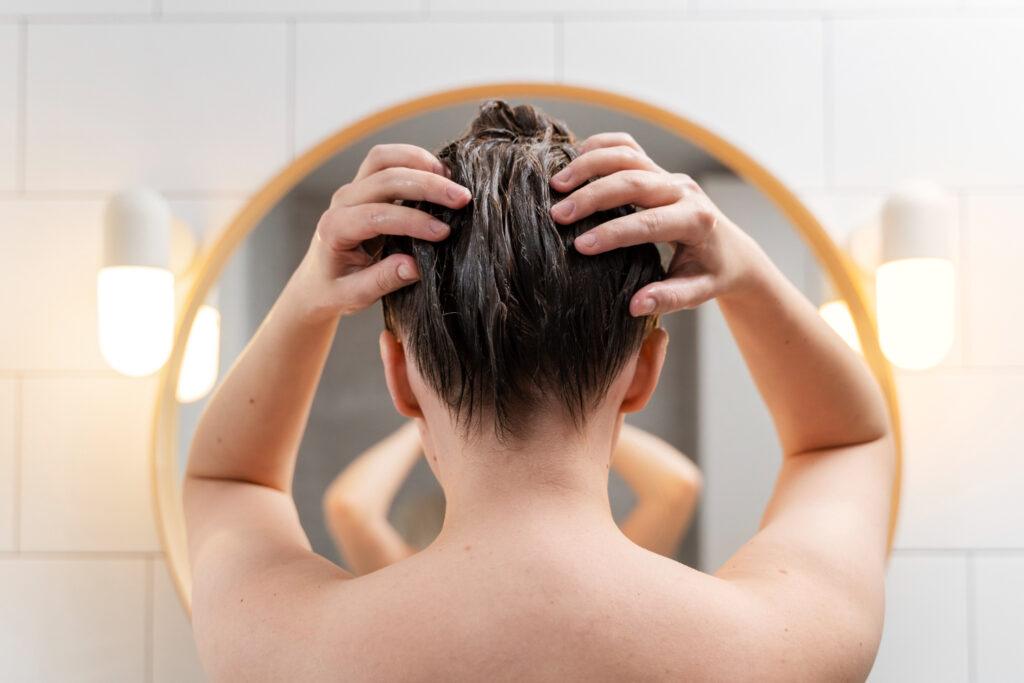
Be gentle with your hair when it’s wet because that’s when it’s most vulnerable.
Instead of roughly toweling it dry, gently pat it with a towel to avoid breaking strands.
Also, try to use a wide-tooth comb to detangle your hair when it’s wet, moving carefully from the ends to the roots.
Avoid tight hairstyles that pull on your roots like high ponytails or braids. Over time, pulling can damage hair follicles, leading to weaker hair.
Opt for looser styles that don’t put too much stress on your hair.
7. Get Enough Sleep
Believe it or not, sleep affects hair growth. Your body heals and regenerates while you sleep, including your hair follicles.
Getting around 7-8 hours of sleep per night is ideal for this regenerative process.
Make sure your pillowcase is hair-friendly, too.
Silk or satin pillowcases create less friction than cotton ones, which means less tugging at your hair during the night and fewer split ends.
8. Manage Stress
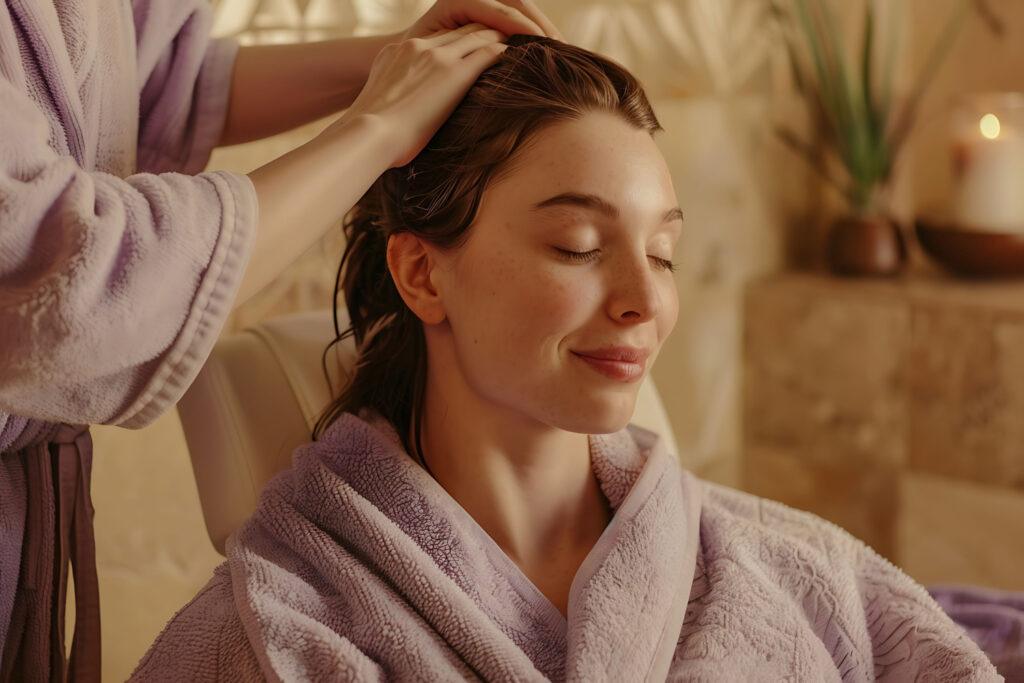
High-stress levels can actually cause hair loss. Finding effective ways to manage stress is important not just for your mental health but for your hair as well.
Yoga, meditation, and regular exercise are great for reducing stress.
Make sure to give yourself some downtime, too. Whether it’s reading a book, taking a bath, or just chilling out, lowering your stress can lead to healthier hair.
Your hair will thank you for taking that time to relax!
Related Articles
How To Smell Good All Day Long: 10 Best Practices
How To Look Beautiful Naturally
10 Bad Habits That Make You Age Faster
9. Protect Your Hair from the Sun
Just like your skin, your hair needs protection from the sun. Too much sunlight can dry out your hair and make it weak.
You can wear a hat or a scarf when you’re going to be in the sun for a long time. This helps keep your hair covered and protects it from getting too dry or brittle.
Another good idea is to use hair products that contain UV protection. These products form a barrier that helps shield your hair from sun damage.
Applying a leave-in conditioner with UV protection is a quick way to care for your hair on sunny days.
Remember, your hair can get sunburned too, especially if you have very fine or light-colored hair.
Taking steps to protect your hair from harsh sun rays can keep it looking healthy and vibrant, even during the summer.
10. Avoid Harsh Chemical Treatments

Chemical treatments like coloring, perming, or straightening can really take a toll on your hair.
They often involve harsh chemicals that can weaken your hair’s natural structure. If you love changing your hair color or style, try to space out these treatments to give your hair time to recover.
You can also look for gentler alternatives that don’t use strong chemicals.
Some brands offer ammonia-free hair colors or treatments with natural ingredients that are less damaging.
Always make sure to deep condition your hair after any chemical treatment to help restore moisture and strength.
Visiting a professional stylist can also make a difference. Professionals can recommend the best products and methods for your hair type, ensuring that your hair remains as healthy as possible even with regular treatments.
11. Use the Right Hair Care Products
Choosing the right hair care products for your hair type is crucial.
Not all shampoos, conditioners, and styling products work the same for everyone.
For example, someone with curly hair might need a more moisturizing product, while someone with fine hair might look for something that adds volume.
Read labels and try to find products that match your specific hair needs. Avoid products with harsh sulfates and parabens, which can strip your hair of its natural oils.
Instead, opt for those with nourishing ingredients like natural oils, proteins, and botanical extracts.
You can also ask your hairstylist for recommendations. They can help you choose products that will work best with your hair type and condition, ensuring you get the most out of your hair care routine.
12. Don’t Over-Wash Your Hair
Washing your hair too often can strip it of its natural oils, which are essential for keeping it healthy.
The right frequency depends on your hair type and lifestyle. For many people, washing their hair a few times a week is enough.
On days you don’t wash your hair, you can use dry shampoo to absorb excess oil and refresh your roots.
This helps you maintain good hair texture and volume without over-washing. Just be sure not to rely too heavily on dry shampoos, as they can build up on your scalp over time.
Listening to your hair is key. Notice how it reacts to different washing schedules and adjust accordingly. Your hair will let you know what works best for it!
13. Regularly Change Your Pillowcase
Switching your pillowcase regularly can also help with hair health.
Oil, sweat, and skin cells can build up on your pillowcase and transfer back to your hair, making it greasy and more prone to breakage.
Using a silk or satin pillowcase reduces friction, which means less tugging on your hair while you sleep.
These materials are smoother and can help keep your hair tangle-free through the night.
Changing your pillowcase at least once a week is a good habit. It’s a simple step, but it can make a big difference in keeping your hair clean and fresh. Plus, it’s great for your skin too!
